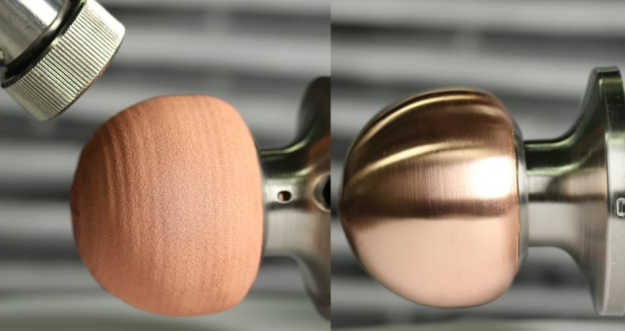
McGill researchers’ cold-spray coating deactivates COVID-19 virus
By DE Staff
General MedicalCold-spray copper alloy coating shown to be 99.9% effective at reducing bacteria and viruses on high-touch metallic surfaces.

Developed in collaboration with the NRC, this copper-based, cold-spray coating deactivates 99.9 per cent of human coronavirus in 30 minutes, say McGill University researchers. (Photo credit: McGill University, Faculty of Engineering)
“Our initial trial data, obtained in collaboration with the National Research Council of Canada, demonstrates the efficiency of the coating in deactivating 99.9 per cent of human coronavirus in 30 minutes,” said Stephen Yue, a James McGill Professor in the Faculty of Engineering.
“There is an entire value chain in Canada around cold spray technology, which can be rapidly activated and deployed to help reduce the spread of SARS-CoV-2 in public spaces, such as hospitals and public transit and which will benefit tremendously from this research.”
As part of this project, the McGill and NRC researchers will develop and test its antiviral coatings at the McGill-NRC cold spray facility. The team will also partner with Polycontrols, Hatch, and 5N Plus. The industry partners will provide expertise in the preparation of the powder feedstock materials and developing the manufacturing process that will be carried out at the NRC’s and Polycontrols’ joint facility, PolyCSAM.
www.mcgill.ca
